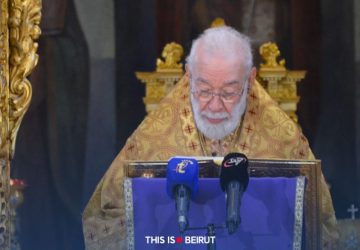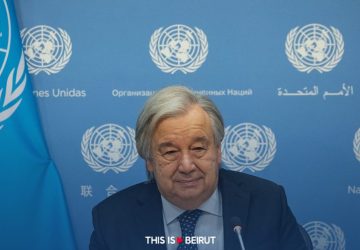Listen to the article
Lebanon is expected to soon approve the awarding of blocks 8 and 10 in its Exclusive Economic Zone (EEZ) to the consortium comprising TotalEnergies, Eni, and Qatar Energy for offshore oil and gas exploration.
However, the Lebanese Petroleum Authority is seeking to introduce an amendment to the set timeframe for seismic studies in block 8, which Total is supposed to undertake at its own expense. Lebanon aims for the operation to be completed within a maximum period of three months from the contract execution date, ensuring that the duration of oil well drilling is also kept short. Beirut envisions the drilling process lasting only a few months instead of extending over more than a year.
In August, Lebanon initiated a three-dimensional (3D) seismic study of block 8, with the results expected to be disclosed by the end of the first half of 2024. If the findings prove positive, the exploitation of block 8 is poised to generate revenue once the data is licensed to international companies. The 3D seismic study provides oil companies with a more precise understanding of the hydrocarbon volumes that may be discovered. Block 8 is located within Lebanon’s EEZ and is not encompassed by the delineation of the maritime border with Israel.
However, simultaneous to these developments, some voices have emerged in opposition to the current initiation of a third round of authorization encompassing the remaining 7 blocks, including block 4, currently under the jurisdiction of the Lebanese state following TotalEnergies’ withdrawal. Notably, no decision has been reached regarding block 9.
According to these dissenting views, the third authorization round is poised for failure due to the ongoing conflict in Gaza. They argue that multinational companies are unlikely to show interest, and even if they do participate, their proposals would not serve Lebanon’s best interests.
However, according to sources close to the matter, this argument is deemed unfounded. These same sources emphasize that despite the ongoing conflict in Gaza and clashes with Hezbollah on its northern border, Israel has successfully awarded drilling activities in two maritime blocks. According to these sources, Lebanon cannot afford to remain stagnant on this issue, awaiting a hypothetical resolution, given the current circumstances.
At the maritime border with Lebanon, Israel has successfully awarded drilling operations in one of the blocks within the area known as “Zone I,” situated near the Lebanese Block 8 where gas exploration is supposed to be conducted by TotalEnergies.
The drilling operations in the Israeli block have been awarded to a consortium comprising the Azerbaijani company Socar, the Israeli company New Med and the British giant BP.
At the maritime border with Egypt, Israel has awarded the gas exploration in one of the blocks within the “Zone G” to the Italian company Eni, which is operating in the country for the first time and is part of the consortium responsible for gas and oil drilling in Lebanon. The consortium also includes the British company Dana Petroleum and the Israeli company Ratio Petroleum.





